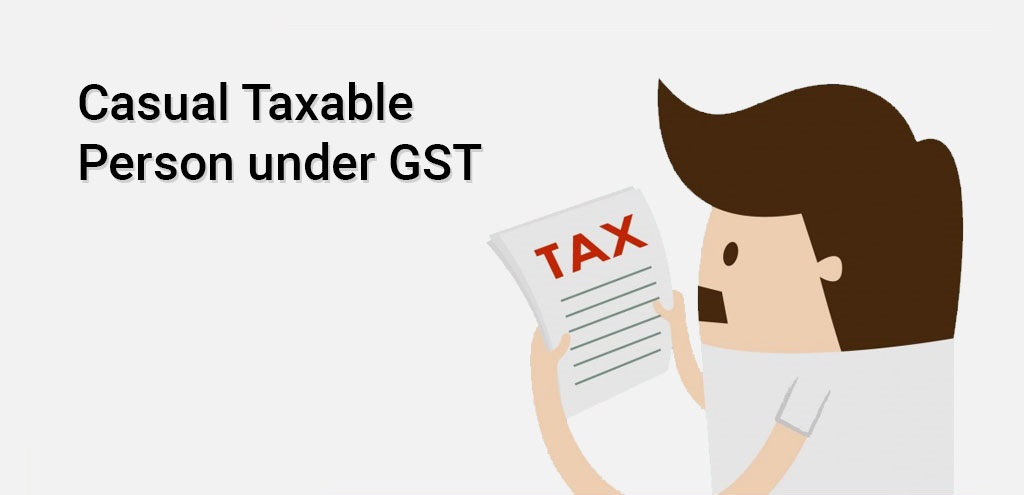
In any tax regime, registration is considered as the most vital requirement in identification of the taxpayers and ensuring tax compliance. Under the GST regime, a number of categories of persons have to register themselves mandatorily under the Act which include:
*Annual turnover limits for normal category and special category states are INR 20 lakhs or more and INR 10 Lakhs or more respectively for service providers.
Definition of a Casual Taxable Person
Under this Act, a casual taxable person (or usually abbreviated as CTP) is an individual who carries out transactions involving supply of taxable goods or services intermittently in a certain taxable territory (state or union territory) where he does not have a fixed place of business. The individual can either act as a principal or an agent or in any other capacity to involve in the supply of goods for the furtherance of business. However, a CTP cannot choose composition scheme.
The term, “person” signifies the individuals, Hindu Undivided family (HUF), corporation or company (including government company), an association of persons, limited liability partnership (LLP), a body of individuals, anyone incorporated under foreign laws, etc.
The term, “Place of business” signifies the place of business as stated in the registration certificate. It is the primary location where the business of the taxpayer is mainly performed.
The term, “Composition scheme” signifies an option or tax paying mechanism on the part of taxpayer who will have certain benefits upon registration under such scheme. The benefits may pertain to lower tax liability, and reduced paperwork and compliance.
For instance, an individual is having the place of business in Delhi and providing professional accounting services in Bangalore where he has no place of business. Thus, that individual will have to register as a casual taxable person in Bangalore so that he or she may carry out his business activities.
Registration under the Act
A CTP is under a mandatory obligation to obtain a temporary registration in the taxable territory where he seeks to involve in the supply of goods or services as a casual taxable person. This registration is generally valid for a period of 90 days in the state where he is going to supply as a CTP. A CTP is under the mandatory obligation to make an advance deposit of GST considering the tax liability estimation.
In the aforesaid example, if the individual estimates that his taxable services amounts to INR 100,000 then he will be required to make an advance deposit of INR 18,000 for obtaining the temporary registration.
Returns to be furnished
A CTP is required to furnish certain returns on or before specific days. These returns may include:
A CTP is not under the obligation to file the annual return as mandated by a usual registered taxpayer.
Refund for Casual Taxable Person
A CTP may also become eligible for the refund of the amount deposited in excess of tax liability. He may claim this refund after furnishing all the required returns for the registration period. The refund balance is generally indicated in serial no. 14 of the Form GSTR 3 and one may apply for the same in case of amount deposited in excess of tax liability.
At AJSH, we assist our clients in dealing with various GST matters (GST registration, filing of GST returns, claiming refund & GST Audits) by providing them adequate support and guidance from our end. To know more about our services and offerings, you can write to us info@ajsh.in or click here.